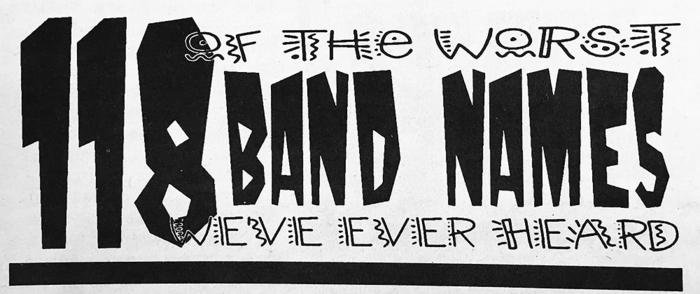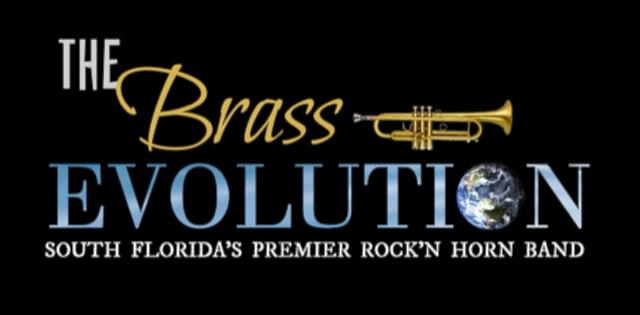Introduction to Band Names
What makes a band name stick with us long after the music fades? The answer might be unexpectedly simple: creativity married with identity. As someone deeply embedded in the music scene, I’ve seen firsthand how a memorable band name can transform the trajectory of an artist. This is not just a superficial label; it’s an invitation, a symbol of what the band stands for. Some of the most creative band names echo through halls and airwaves, each with a story of its own. Whether it’s the oddity of “The Flaming Lips” or the intriguing audacity of “Led Zeppelin”, these names capture imaginations, making you wonder about the minds behind them. In this article, I delve into the alchemy of band name ideas that stand out, exploring how iconic names have evolved and continue to inspire new generations of musicians around the world. Join me as we celebrate the art of naming bands with flair and ingenuity.
Why Band Names Matter

Did you know that nearly 80% of listeners will remember a band by its name alone? In my years with Guitar Player, I’ve come to appreciate how a band’s name is not just a title—it’s an identity that encapsulates their music style, ethos, and ultimately shapes fan experience. The importance of choosing the right name cannot be overstated; it serves as the first impression a band makes. A name has the power to intrigue potential fans, hint at a band’s unique sound, and create a lasting image in the music landscape.
From my interactions with numerous musicians, I’ve observed that crafting the perfect band name is both an art and a science. It requires understanding your audience and knowing how to stand out in a sea of contenders. A captivating name doesn’t just echo through arenas and playlists; it ingrains itself in the cultural fabric, often becoming synonymous with a particular era or genre.
Moreover, a compelling band name fuels a narrative and invites listeners to delve deeper into the music. It transforms a simple introduction into a memorable encounter. As we celebrate some of the best band names of all time, let’s not overlook the significance these names hold. They are, in many ways, the unsung lyrics underlying every great ensemble’s story.
Who Makes Iconic Band Names?

In the vibrant world of music, the process of naming a band often mirrors the creative journey of making music itself. Over the years, I’ve had the privilege of interviewing many musicians who share the stories behind their band names, revealing how personal experiences and influences drive creative naming choices. Which famous artists had a say in their iconic band names, and how did their visions shape their legacies? This is where true narratives unfold.
Take The Beatles, whose simple yet unforgettable name sprung from a playful twist on the word “beat.” According to my conversations with those involved in the evolution of the British music scene, the name resonated deeply with their groundbreaking sound. Each syllable echoed the seismic waves they sent through the industry, proving that a band’s name can become as legendary as the music itself. Similarly, the legendary Led Zeppelin came to be after Keith Moon joked about a band that would ‘fall like a lead balloon.’ Their name, modified for style, didn’t just avoid sinking; it soared.
These stories aren’t mere anecdotes; they form the very identity of these bands, intertwining with their music and public personas. Through these insights, I’ve come to appreciate the profound impact of a well-considered band name, acting not only as a symbol but as a beacon that guides their artistic journeys.
When Did Band Names Evolve?

Throughout my 20-plus years of analyzing trends in music journalism, I’ve witnessed a fascinating evolution in band names that often mirrors the cultural zeitgeist. The shift in names over the decades isn’t just a matter of style but a direct response to the changing landscape of music. In the early days of rock and roll, bands often opted for straightforward, descriptive names. As music genres blossomed and fragmented, how has the evolution of music genres impacted the creativity behind band names over the decades? This question captures the essence of a transformation that is as dynamic as music itself.
When punk rock exploded onto the scene, it brought gritty, raw influences to naming conventions, while the emergence of electronic music inspired more abstract, futuristic monikers. These changes in genre and audience expectations have continually pushed artists to be more inventive and bold in their choices, a trend that continues to captivate our imaginations today.
Where to Find Inspiration for Band Names

As a co-founder of several music websites, I’ve always believed that inspiration for band names can be found in the most unexpected places. Take a moment to consider: What unconventional sources can spark your imagination when brainstorming band names? It’s a fascinating question that opens a world of possibility. Sure, browsing through art galleries or scouring novels can ignite a spark, but some of the best ideas I’ve encountered came from the most unconventional, quirky places.
Personally, I’ve discovered gems in conversations with friends over a cup of coffee, where a humorous slip of the tongue turned into a compelling band moniker. Even passing graffiti on a hidden alley wall can be a catalyst, a moment where chaotic scribbles suddenly translate into a name embodying your band’s soul. Nature, too, has a certain unpredictability; bird calls, wind patterns, or the rustling of leaves might just conjure the perfect name out of thin air.
Let’s not dismiss personal experiences either—stories often resonate deeply, especially when they stem from moments of clarity born from our unique journeys. Think of a childhood nickname that still holds power or a travel memory seared into your consciousness. As long as you remain open to the world around you, who knows what outlandish little nugget will plant the seed for your band’s ultimate identifier?
How to Create a Great Band Name

Creating a band name—a true craft in its own right. Through my journey in content creation and music branding, I’ve seen firsthand how a powerful name can propel a band from obscurity to stardom. But this isn’t just about slapping together some cool words. No, it’s about crafting something that fans can connect with and remember for decades to come. What are the key ingredients to crafting a name that resonates with fans and stands the test of time? This is the heart of what I want to delve into.
First and foremost, originality is non-negotiable. A name needs to stand out and be unlike anything else echoing in the music industry halls. It’s this unique twist that captures curiosity and draws listeners in. Take the Beatles, for instance. Its play on ‘beetle’ with a musical twist is pure genius, instantly both recognizable and distinctive.
Equally important is wit. Cleverness in a band name offers an extra layer of appeal, an inside joke that fans are eager to be a part of. It becomes a conversation starter, a point of intrigue that enhances the band’s mystique and relatability.
And let’s not overlook memorability. The best names stick. They’re easy to recall, even after hearing them just once, and they evoke emotion or imagery that aligns with the band’s ethos. This is why names like Nirvana and Radiohead remain etched in our memories—their simplicity coupled with powerful implications.
In building a great band name, it’s this unique blend of originality, wit, and memorability that sets a group on the path to musical immortality, one lyrical beat at a time.
FAQs
What Makes a Band Name Great?
Who Are Some Bands Known for Their Creative Names?
How Do Bands Choose Their Names?
Can a Band Name Affect its Success?
Conclusion
Reflecting on the journey through the world of the best band names ever, I’m reminded of the timeless allure they’ve held over the decades. From legendary band names like The Beatles and Fleetwood Mac to more recent icons, each name carries a story that echoes across generations. Why do memorable band names continue to captivate us across generations? They embody more than just a catchy phrase; they encapsulate the spirit and ethos of their era, forging a deep connection with fans worldwide. With years of experience chronicling music history, I can confidently say that great band names not only reflect the past but also inspire future generations of artists, paving the way for innovation in music. It’s this enduring impact that makes us celebrate their creativity. Whether you’re a musician, a fan, or just someone who appreciates the art, there’s no denying the lasting relevance and influence a great band name possesses in the world of music.

Michael Molenda, the transformative Editor in Chief of Guitar Player magazine from 1997 to 2018, revolutionized its content and expanded its influence. With over 2,500 published works, including in-depth interviews and technical analyses, he’s a giant in guitar journalism. Post-Guitar Player, he launched CONTENT BY MOLENDA and co-founded music websites, bringing his unmatched expertise to the forefront of music marketing. At Fretterverse, Molenda continues to shape the guitar world with insightful commentary and trendsetting journalism.
